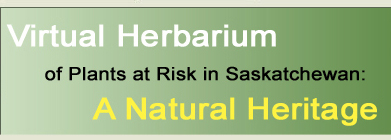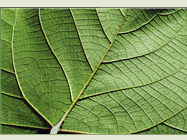|
| Erigeron strigosus
var. strigosus Muhl. ex Willd. |
|
| |
| TAXONOMY |
| |
| Family: |
Asteraceae or Compositae |
| Genus: |
Erigeron |
| |
| Species Synonyms: |
Erigeron annuus ssp. strigosus
(Muhl. ex Willd.) Wagenitz
Erigeron ramosus (Walt.) B.S.P.
Erigeron strigosus var. discoideus Robbins ex Gray
Erigeron strigosus var. eliqulatus Cronq.
Erigeron
strigosus var. typicus Cronq.
Erigeron traversii
Shinners
Stenactis strigosa (Muhl. ex Willd.) DC. |
| Common Names: |
whitetop
prairie fleabane
daisy fleabane |
| |
| DISTRIBUTION |
| |
| Canada: |
British Columbia, northeastern Alberta, central
and southeastern Saskatchewan, southern Manitoba, Ontario, Newfoundland,
Nova Scotia |
| Saskatchewan: |
central – southeastern Saskatchewan; Meadow
Lake Provincial Park – Souris River Valley |
| Ecoregion: |
Moist Mixed Grassland, Aspen Parkland, Boreal
Transition, Mid-Boreal Upland |
| |
| HABITAT |
| |
| Saskatchewan: |
sandy, clay, shale and alkaline
soils in grassy prairies, shores, and forest clearings |
| |
| RARITY STATUS |
| |
Provincial
Status According
to Harms (2003): |
Threatened |
| Nature Conservancy
Status: |
G5T5 S2S3 |
Saskatchewan
Species at
Risk Status: |
None |
| COSEWIC Status:
|
None |
| |
| Erigeron strigosus
var. strigosus is apparently secure, occurring in two or three
general regions of the province; however, populations are small and isolated,
making this species vulnerable. |
| |
| SPECIES
DESCRIPTION |
| |
| Height: |
30 – 70 cm tall |
| Roots: |
fibrous |
| Stems: |
can be reddish in larger specimens, finely strigose |
| Leaves: |
basal and cauline; basal leaves to 15 cm long,
to 2.5 cm wide, deciduous, tapering to petiole, oblanceolate to elliptic,
entire to sparingly toothed; cauline leaves alternate, sessile, linear to
lanceolate, apex acute to acuminate |
| Inflorescence: |
heads several, 5 – 12 mm broad; phyllaries
3 – 5 mm, subequal, green; receptacle naked |
| Flowers: |
ligulate florets 50 – 100, rarely 0, to
6 mm long, 1 mm wide, white or pinkish; tubular florets 1.5 – 2.5
mm long |
| Fruits: |
achenes 2-nerved; pappus double, inner series
of 10 – 15 fragile bristles, outer series of setose scales |
| |
| ERIGERON
SPECIES FOUND IN SASKATCHEWAN |
| |
| 1 Leaves dissected |
E. compositus |
| 1 Leaves not dissected |
2 |
| |
|
2 Rays absent or inconspicuous (<
6 mm; if longer than 6 mm, < 1 mm wide)
|
3 |
| 2 Rays present (> 6 mm) |
9 |
| |
|
| 3 Involucre glabrous |
Conyza canadensis var. canadensis |
| 3 Involucre pubescent and/or glandular |
4 |
| |
|
| 4 Involucre glandular, may be sparsely
pubescent |
5 |
| 4 Involucre pubescent, but not glandular |
6 |
| |
|
| 5 Several to many heads; densely glandular
involucre |
E. acris ssp. politus |
| 5 Head solitary; somewhat glandular
involucre |
E. acris ssp. debilis |
| |
|
| 6 Pappus double |
7 |
| 6 Pappus single |
8 |
| |
|
| 7 Phyllary hairs flattened, stem hairs
appressed |
E. strigosus var. septentrionalis |
| 7 Phyllary hairs terete, stem hairs
appressed to ascending |
E. strigosus var. strigosis |
| |
|
| 8 Leaves shorter than peduncles of
flower heads; inflorescence corymbose, occasionally solitary; rayless pistillate
flowers present between ray and disc flowers |
E. elatus |
| 8 Leaves sometimes exceeding lower
heads in inflorescence; inflorescence racemose; occasionally solitary; rayless
pistillate flowers absent |
E. lonchophyllos |
| |
|
| 9 Plants < 20 cm high; heads few
to solitary |
10 |
| 9 Plants > 20 cm high; heads 2
– many |
12 |
| |
|
| 10 Leaves usually basal only; flowers
white |
E. radicatus |
| 10 Cauline leaves present; flowers
yellow or purple (if white, leaves 3 – 7 cm long) |
11 |
| |
|
| 11 Leaves 3 – 7 cm long, with
1 – 3 cauline leaves; flowers yellow to white or lavender |
E. ochroleucus var. scribneri |
| 11 Leaves 1 – 3 cm long, many
cauline leaves; flowers purple |
E. hyssopifolius |
| |
|
| 12 Stems scapose or subscapose |
E. pumilus |
| 12 Stems distinctly leafy, often reduced
upwards |
13 |
| |
|
| 13 Ray florets coloured |
14 |
| 13 Ray flowers white |
16 |
| |
|
| 14 Stem leaves largest at the middle
of stem |
E. hyssopifolius |
| 14 Stem leaves reduced upwards |
15 |
| |
|
| 15 Leaves clasping and auriculate |
E. philadelphicus var. philadelphicus |
| 15 Leaves not clasping or auriculate |
E. glabellus var. glabellus |
| |
|
| 16 Stem leaves largest at the middle
of stem |
E. hyssopifolius |
| 16 Stem leaves reduced upwards |
17 |
| |
|
| 17 Perennial with woody caudex, tough
rhizome, or thick taproot |
18 |
| 17 With neither deep-well developed
rhizomes nor woody caudices, at most a short rhizome or stolons |
19 |
| |
|
| 18 Caudex; stem leaves 5 – 7 |
E. glabellus var. glabellus |
| 18 Thick taproot; stem leaves >
10 |
E. caespitosus |
| |
|
| 19 Pappus of ray and disc florets
unlike (pappus of rays single) |
E. annuus |
| 19 Pappus of ray and disc florets
alike |
E. asper |
|






